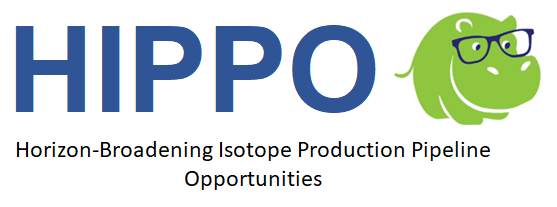Sherry Yennello (she, her)
Texas A&M Cyclotron Institute Director
Regents Professor of Chemistry
Ph.D., Indiana University, Nuclear Chemistry, November 1990
B.S., Rensselaer Polytechnic Institute, Physics, May 1986
B.S., Rensselaer Polytechnic Institute, Chemistry, December 1985
RESEARCH INTERESTS
Accelerator produced isotopes for medical applications – particularly the production, purification and application of alpha emitting isotopes for targeted alpha therapy. Involved in producing astatine-211 at the Texas A&M University Cyclotron Institute, and is interested in developing production capability of other interesting radioisotopes using heavy ions.
Accelerator based heavy-ion reactions to study the dynamics and thermodynamics of excited nuclear matter and elucidate the nuclear equation of state – particularly the density dependence of the symmetry term – which has implications for the formation of elements and other astrophysical processes.
EDUCATIONAL INTERESTS
Equity and access to education and professional advancement for all, including both creating opportunities and motivating students to take advantage of opportunities that are available. Interests include motivating the current stakeholders to be agents of change.
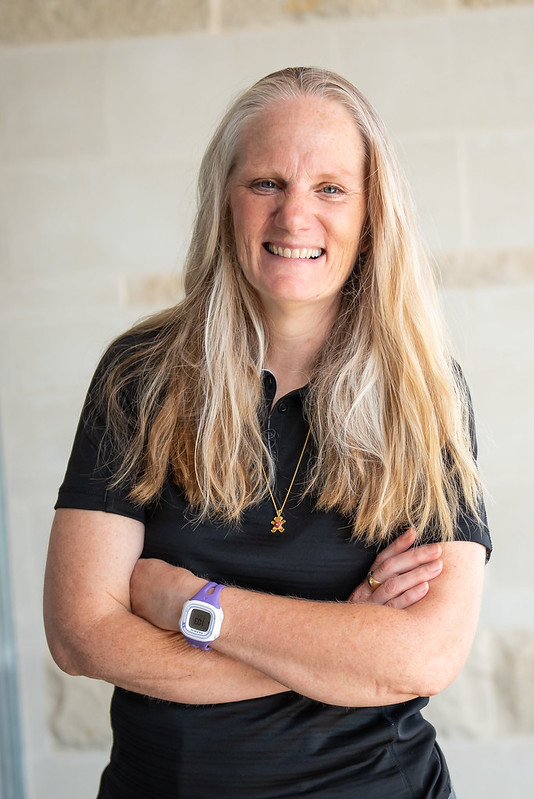
Lauren McIntosh
Executive Director of HIPPO
Assistant Research Scientist at Texas A&M University Cyclotron Institute
McIntosh is involved in producing astatine-211 at the Texas A&M University Cyclotron Institute, and is interested in developing production capability of other interesting radioisotopes using heavy ions. Her graduate work in Chemistry at Texas A&M University was focused on nuclear reactions. As the Executive Director of HIPPO, she facilitates collaboration between the institutions and manages activities and meetings for the center.
One recent publication related to her proposed work with HIPPO collaborators is available here.
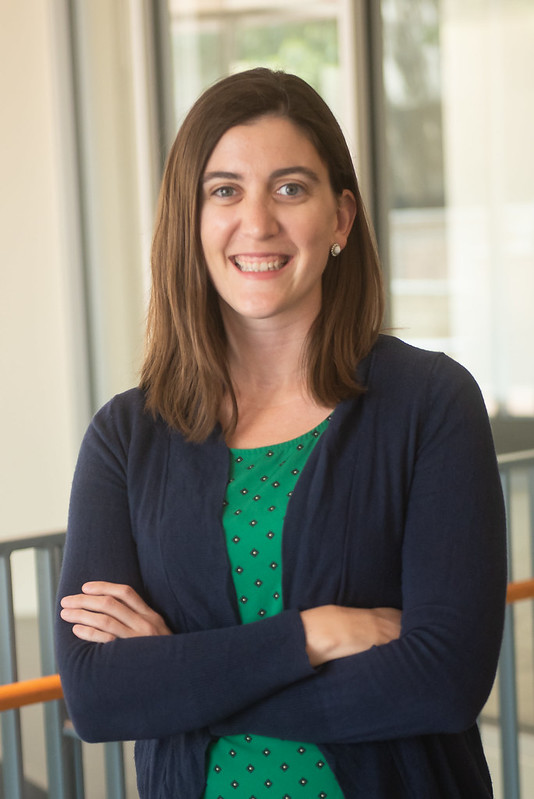
Dr. Eszter Boros
Assistant Professor of Chemistry and Radiology, by courtesy
Eszter Boros was appointed at Stony Brook University as an Assistant Professor in Chemistry in September 2017, with courtesy appointments in Radiology and Pharmacology at Stony Brook Medicine. Eszter is now the Hall-Fisher Associate Professor of Chemistry at the University of Wisconsin-Madison, where they relocated to in May 2023. The Boros lab, a diverse team of postdoctoral, graduate and undergraduate researchers, has established multidisciplinary research program focused on the design, synthesis, preclinical evaluation and clinical translation of metal-based imaging probes and therapeutics. Projects in our lab use coordination chemistry principles applied to radioactive isotopes as photon sources, biological in vitro tracers and of course diagnostic and therapeutic radiopharmaceuticals. Some isotopes used in the Boros lab, and part of the HIPPO experience, include but are not limited to:18F, 44Sc, 47Sc, 177Lu, 132/135La, 86Y, 67Ga and 89Zr.
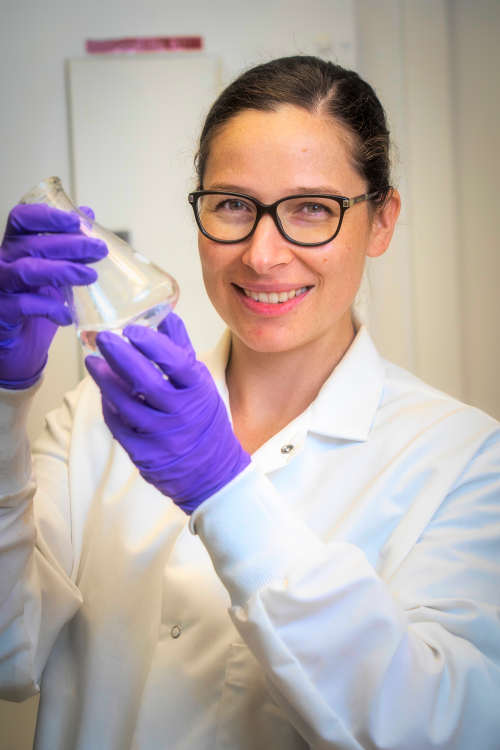
Jonathan D. Burns
Assistant Professor of Chemistry at the University of Alabama at Birmingham
Burns is an inorganic radiochemist with over 15 years of experience in the area of radiochemical separations. This has encompassed separations for the purification of materials used in nuclear targetry and the production and recovery of isotopes from nuclear reactions. The Burns Research Laboratory currently focuses on the several areas relevant to HIPPO, including the investigation into emerging radioisotopes for medical applications, such as 211At, and the design of nanomaterials for radiopharmaceuticals. Burns will take part in HIPPO through helping lead the University of Alabama at Birmingham site HIPPO Campus experience, as well as serve as a research mentor for graduate and undergraduate students.
His Research Group’s webpage can be found here.
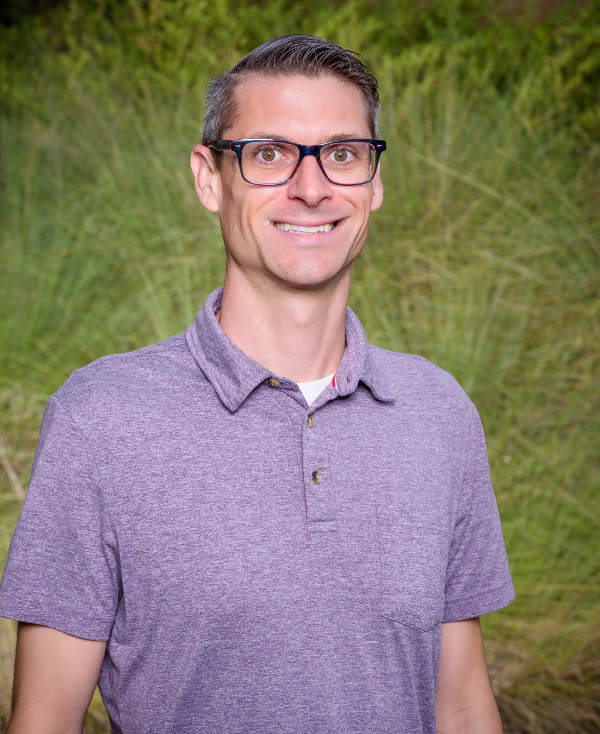
Dr. Abdalla Darwish
Presidential Professor BIO
Dr. Darwish is a Dillard University professor of physics, University Presidential Professor, also is holding the Ruth Simmons University Distinguished Professorship, he is International Society of Optics and Photonic (SPIE) Fellow. He has authored over 120 publications and four book chapters in the areas of nonlinear optical materials, magnetic resonance, waveguides, thin film fabrication. Through his research efforts, nine patents have been filed, and three were issued in May and July 2019 and July 2021. Dr. Darwish has also been able to form an international research collaboration and MOU with Japan Shibaura Institute of Technology (SIT) in Tokyo. Under his leadership, the physics department became a signature program and holds a National standing in graduating more than 55% of African Americans in physics since 2000 by the American Institute of Physics (AIP) and ranked second in graduating black females in physics. In 2017, Professor Darwish was named the Male Professor of the year by the HBCU digest. Dr. Darwish has delivered many invited talks and keynote presentations in Japan, China, Italy, Greece, France, and many others. Dr. Darwish has been a Dillard University faculty member since 1998 and has served Dillard university in numerous administrative roles, including chair of the physics, chair of the School of STEM, interim dean of the College of A&S and Associate Provost and Associate Vice President for Academic Affairs. Prior to coming to Dillard, Darwish served as an associate professor at Alabama A&M University, where he supervised many graduate students (MS and PhD). In addition, Dr. Abdalla Darwish holds a public office where he has been serving as member of city of Kenner civil service board since its inception in 2006 until present. Dr. Darwish was awarded the Monte Lemann Award from the civil service league of the State of Louisiana in October 2014.
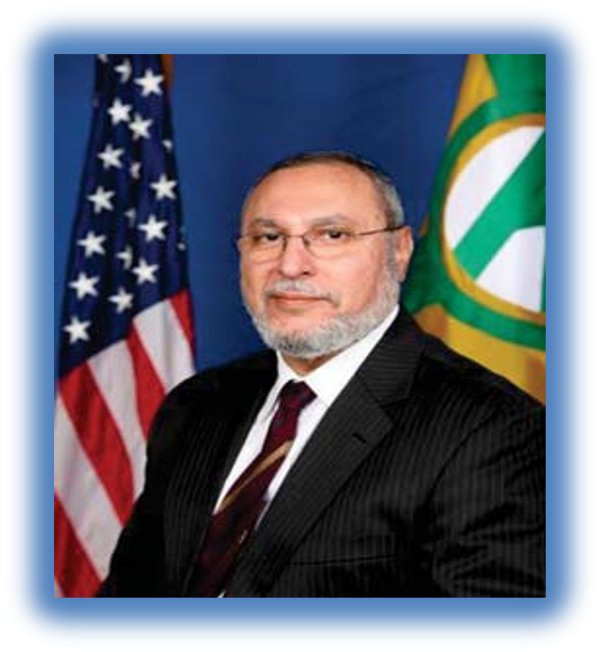
Melissa Deri (she,her)
Horizon-broadening Research Activities Coordinator
Chair of Undergraduate Experience Committee
Assistant Professor of Chemistry at Lehman College of the City University of New York
Deri is a radiochemist focused on the production, separations, coordination, and application of radiometals, particularly for use in nuclear medicine. Trained in chelator design and molecular imaging at Hunter College CUNY and Memorial Sloan Kettering Cancer Center, Deri has continued her research on radiometal chelators but has expanded her interests to include the production and isolation of medically relevant radiometals. Her current research projects include the design and evaluation of radioscandium bioconjugates as well as development of alternative materials for 44Ti/44Sc generator systems. Additionally, Deri is dedicated to increasing awareness of nuclear science and is excited for the opportunity to reach a broader group of students through the HIPPO program.
More information can be found on her lab's website.
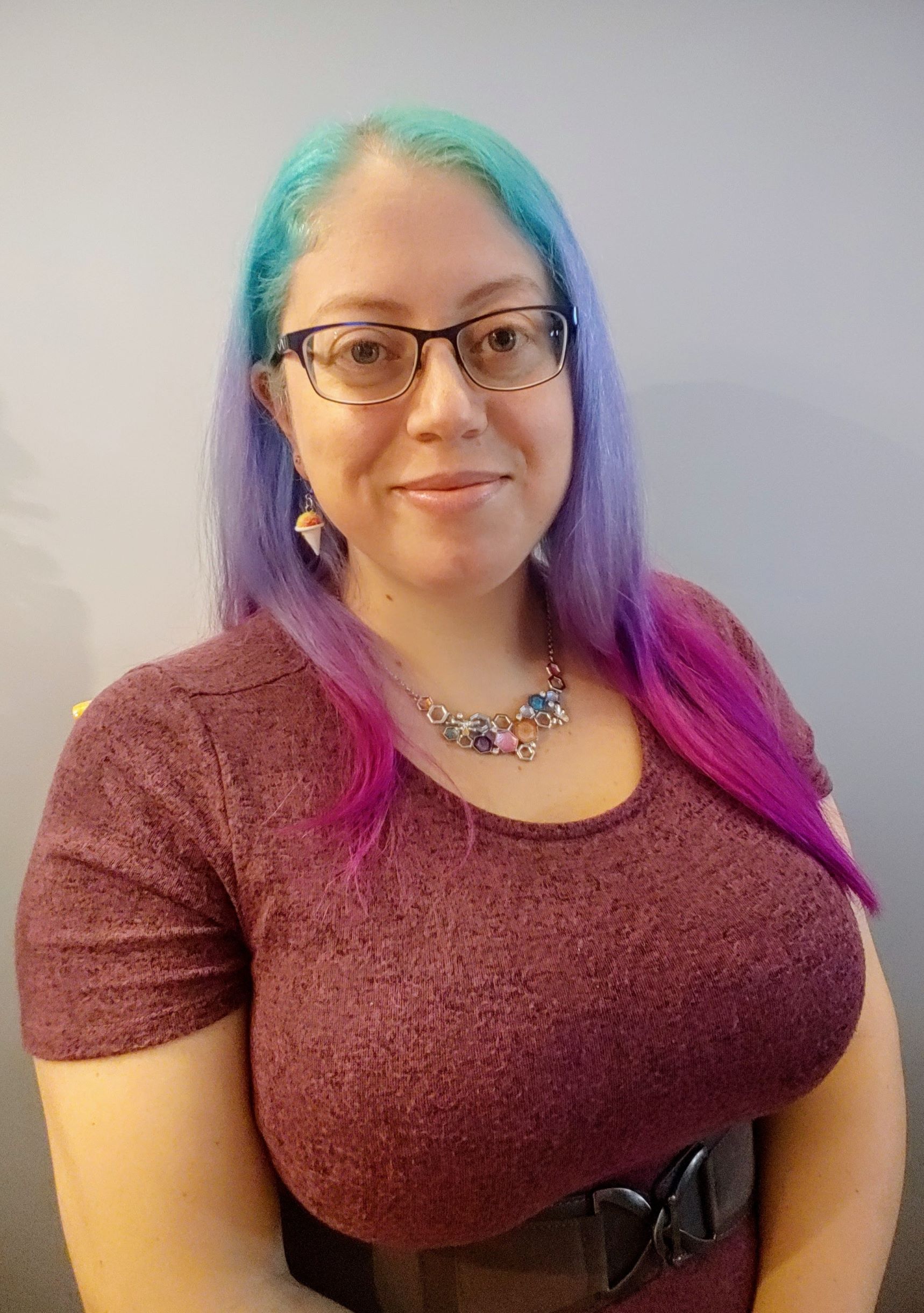
Paul Ellison
Assistant Professor of Medical Physics at University of Wisconsin, Madison
Ellison has 15 years of experience in the field of nuclear and radiochemistry and 9 years of experience with the production of radionuclides of interest to nuclear medicine. Trained as a nuclear chemist at University of California, Berkeley and equipped with the do-it-yourself spirit at the University of Wisconsin, his research interests include the development of isotopically enriched solid cyclotron targetry, the design and utilization of high temperature furnace assemblies for novel cyclotron target metallurgy and chemistry, adjacent lanthanide chemical separations, and small molecule synthetic radiochemistry of 76/77Br. As part of HIPPO, Ellison will contribute to the University of Wisconsin Isotope Production site HIPPO Campus experience and serve as research mentor for graduate trainees.
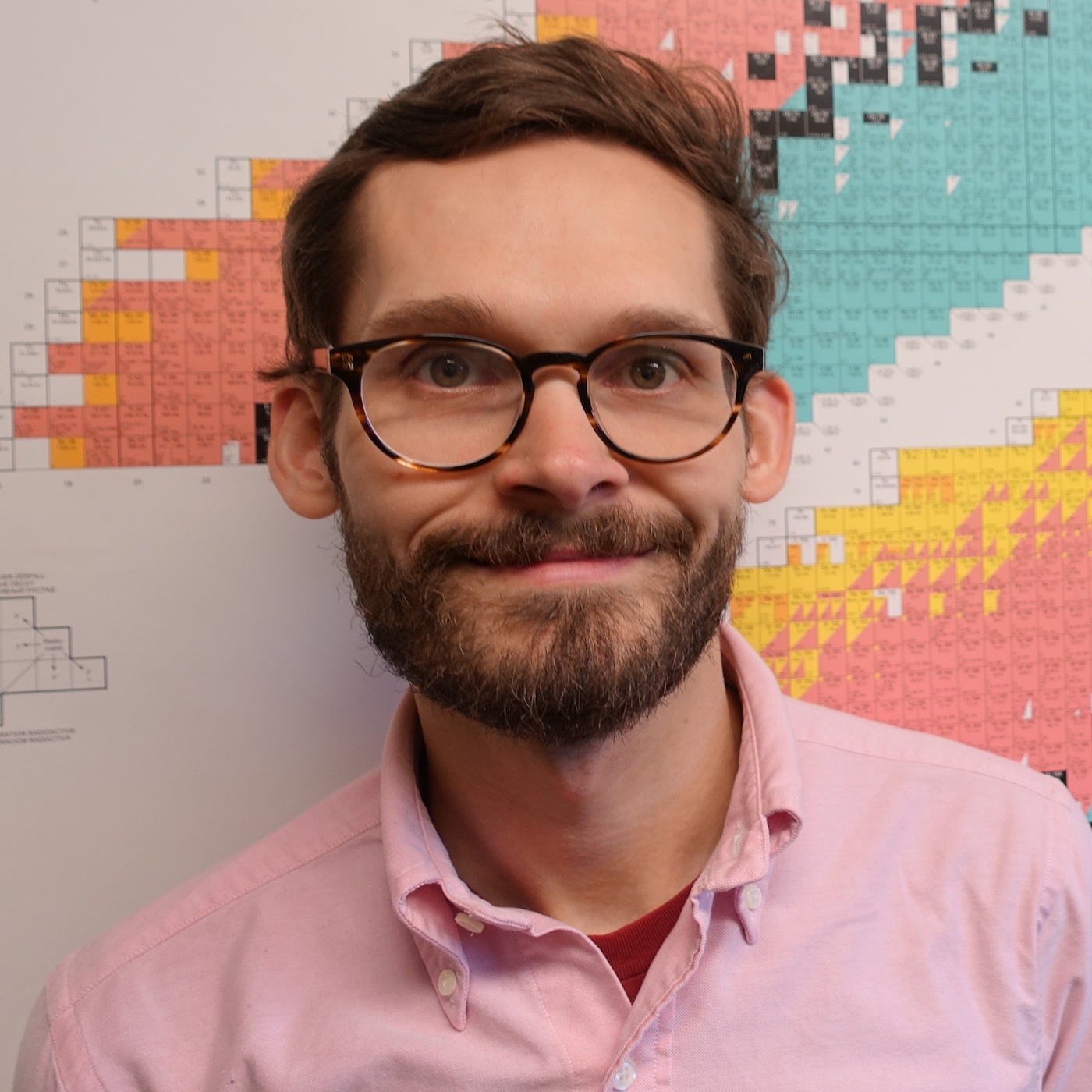
Dr. Jonathan W. Engle
HIPPO Graduate Experience Coordinator
Assistant Professor of Medical Physics and Radiology with affiliations in Engineering Physics and Chemistry at the University of Wisconsin
Engle is an assistant professor in the Departments of Medical Physics and Radiology at the University of Wisconsin (UW). He has 15 years’ experience in radionuclide production, accelerator targetry, radiochemistry, and molecular imaging. He trained as a postdoc at Los Alamos National Laboratory. In 2016, Engle took over the UW Cyclotron Research Group. His research is focused on production of positron- and low energy electron-emitting radionuclides. Within HIPPO, he hopes to ensure productive, enjoyable research and workshop experiences for graduate students.
To visit his Research Group’s webpage click on this link.
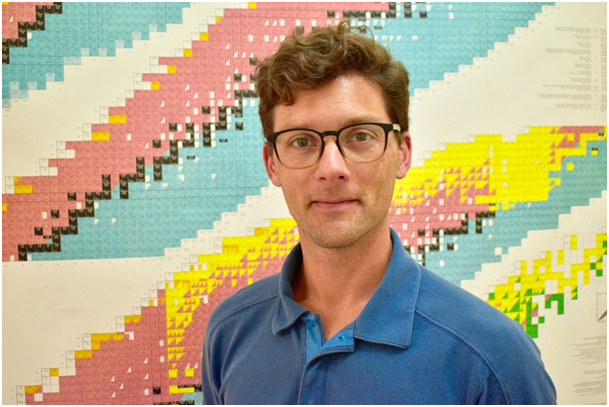
Nicholas Esker (he/him)
Chair of Undergraduate Experience Committee
Assistant Professor of Chemistry at San José State University
Esker teaches physical chemistry and researches nuclear chemistry at San José State University. The Esker Lab’s primary focus is nuclear targetry; the production of specialized thin films for nuclear reactions. Esker’s graduate (UC Berkeley) and post-doctoral work (TRIUMF) focused on nuclear reactions with recoil mass spectrometers, and he’s excited to bring this background to HIPPO. Working at a minority-serving institution, Esker is a strong advocate for broadening nuclear science to schools and communities traditionally under-represented, and excited about this being a key component to the HIPPO collaboration.
To visit his Research Group’s webpage click on this link.

Lynn C. Francesconi
Professor of Chemistry at Hunter College of City University of New York
Lynn C. Francesconi is an inorganic chemist and radiochemist, with strong skills in understanding the coordination chemistry, stabilities and speciation of radiometals such as technetium, radiolanthanides and actinides, both on the tracer and macroscopic levels. She has worked with radiometals for 39 years in industry (Squibb Institute for Medical Research), where Professor Francesconi was one of the first inorganic chemists to investigate Technetium-99m and Technetium-99 chemistry for radiopharmaceutical development. She continued in this pursuit at the University of Pennsylvania, Department of Radiology where she extended her range of radionuclide expertise to 67Ga, 68Ga, 62Cu, 67Cu, 111In among other metals for radiopharmaceutical and MRI development. At Hunter College, she continued work with 99mTc and 99Tc and worked with Diatide (now Bayer) to characterize their radiopharmaceuticals, Apcitide and Depreotide, so that they could file for FDA approval. She is an expert in chelator design for g, β-, a, and positron emitting radiometals for radiotherapy and PET and SPECT. She is a visiting scientist at BNL. As a recognized expert in the chemistry of 99Tc, a prominent byproduct of uranium fission and environmental contaminent, Professor Francesconi studies complexation of Tc with various ligands for fuel cycle processing, remediation and for investigation of materials that may provide prototypes for long-term storage materials. Professor Francesconi was the PI and director of the a successful National Science Foundation-Integrative Graduate Education and Research Training (NSF-IGERT) program based at Hunter that introduced a radiochemistry program into the CUNY Chemistry Ph.D. program. She is presently the National Director for the Department of Energy and American Chemical Society’s Nuclear and Radiochemistry Summer Schools (NCSS). This is an intense summer program to introduce radiochemistry to highly talented undergraduates with the goal of increasing the nuclear and radiochemistry workforce

Reinier Hernandez, Ph.D.
Assistant Professor of Medical Physics and Radiology at the University of Wisconsin-Madison,
Reinier Hernandez is a medical physics and radiochemistry with over a decade of experience. His expertise is in radiochemistry applied to the development of radiopharmaceutical agents for molecular imaging, cancer therapy, and immunomodulation of the tumor microenvironment. He is the leader of the Advanced Radiotheranostics (ART) Laboratory, which focuses on the development of novel radiopharmaceuticals for therapy and diagnostics of cancer with an emphasis on benchtop-to-bedside research to translate fundamental discoveries into life-saving technologies. The ART lab offers opportunities for HIPPO students to be exposed to synthetic chemistry, medicinal radiochemistry, nuclear medicine imaging, and radiopharmaceutical therapy.
You can visit his faculty profile page here.
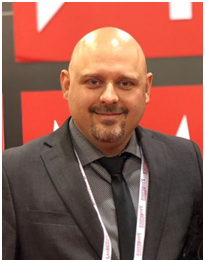
Suzanne E. Lapi
Cyclotron Facility Director, Co-Leader, Experimental Therapeutics Program, O’Neal Comprehensive Cancer Center, Vice Chair of Translational Research, Department of Radiology, Professor, Departments of Radiology and Chemistry, University of Alabama at Birmingham
Suzanne Lapi is currently a Professor of Radiology and Chemistry and Cyclotron Facility Director at the University of Alabama at Birmingham. She oversees production of PET radionuclides and imaging radiopharmaceuticals for preclinical research and clinical trials. Her group holds >15 approved investigation new drug applications for human use imaging agents and supplies 64Cu, 89Zr, 52Mn and other isotopes to groups across the USA and internationally. Her research interests are in the development and translation of new PET radionuclides and molecular imaging agents. She has active research grants from NIH and DOE as well as industry partners. She is also a strong advocate of radiopharmaceutical sciences and the training of future nuclear and radiochemists at the graduate, postdoctoral and faculty levels.
For additional information:
Suzanne E. Lapi (UAB)
Group Page
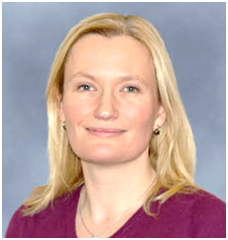
Tara Mastren
Assistant Professor of Nuclear Engineering at the University of Utah
Tara Mastren is a nuclear and radiochemist with 12 years of experience. She specializes in the production and application of radionuclides for nuclear medicine applications and has had experience producing radionuclides on cyclotrons, heavy-ion fragmentation facilities, high-energy accelerators and reactors. Her interests lie in the production of radionuclides for targeted radiotherapy applications. Projects available for HIPPO participants include the reactor production of 161Tb and radionuclide generator design for alpha emitting systems; 225Ac/213Bi and 230Pa/230U/226Th.
More information can be found on her Research page.
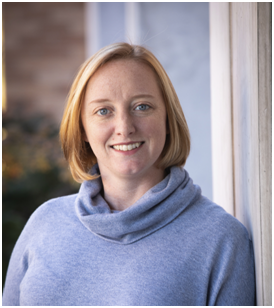
Jorge Munoz
Assistant Professor of Physics at The University of Texas at El Paso
Jorge Munoz studies how atomic vibrations and their interactions with the electronic structure, magnetism, etc. affect the thermodynamic stability of the materials they form. In his research he uses techniques that require specific isotopes, like Fe-57 and B-11, to probe atomic vibrations. The Munoz group has expertise in machine learning and data science and collaborates with domain experts in other fields, including in nuclear physics, helping in the development of machine learning models and pipelines for efficient data reduction and analysis. Jorge strongly believes that undergraduate research and effective mentoring are critical to achieve the educational and professional goals of students. As such, he is committed to create and provide these opportunities to students at UTEP and elsewhere.
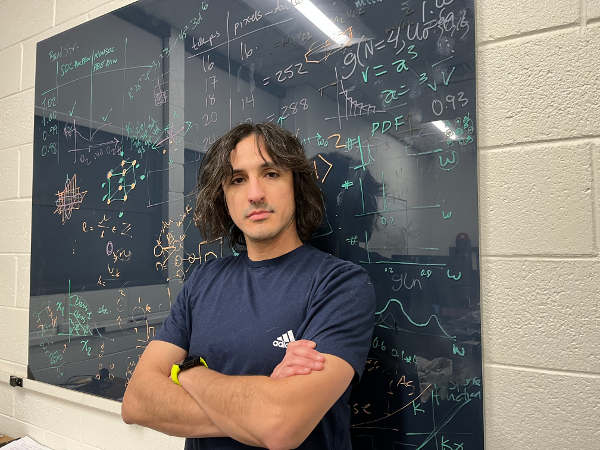
Grace Ndip
Chair and Associate Professor of Chemistry (Organic Chemistry), at Virginia State University (VSU), Petersburg, Virginia.
Ph.D., Texas A&M University, College Station, Organic Chemistry; 1994
M.S., Texas Tech University, Lubbock, TX; Inorganic Chemistry; 1985
B.S., University of Yaoundé, Cameroon, West Africa
Research Interests: Study of bioactive compounds in wild plants and vegetables common to Sub-Saharan countries; isolation, characterization and the study of their bioactivity and efficacy on different cancer cell lines. Other interests include photonic metamaterials and reaction kinetics and methodology of cycloaddition reactions. A new faculty member with expertise in Nuclear Physics has designed a course introducing our students to deeper concepts and applications of nuclear chemistry and physics. Our involvement in HIPPO and ongoing collaborative research in nuclear science, we envision, would potentially lead to the development of a BS in Chemistry with a Concentration in Nuclear Chemistry.
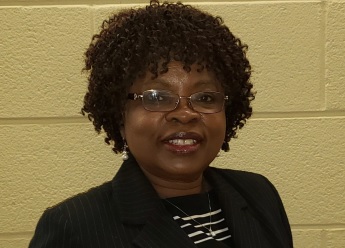
Jerry Nolen
Argonne Fellow in the Physics Division and Group Leader of Research with Ion Beams and Isotopes
Nolen is a Deputy Manager of the Radioisotope Research and Production Program at Argonne. He is a physicist with interests in much of the science and technology required to develop isotopes to advance their use in the treatment of cancer. His current research builds on his past work in nuclear physics, accelerator physics, and beam optics. Therapeutic medical radioisotopes of interest span the range from beta-emitters and alpha-emitters to the emerging field of Auger-electron-emitters. Special emphasis is on the development of theragnostic pairs of isotopes of the same element which enable both imaging and therapeutic functions.
More information about the ANL radioisotope research and production program can be found here.

Ellen M. O’Brien
Staff Scientist, Isotope Program, Los Alamos National Laboratory
Ellen O’Brien is a staff member in the Isotope Program at Los Alamos National Laboratory (LANL). Her graduate (North Carolina State University) work in the field of nuclear engineering focused on modeling the highly interdependent multiphysics behavior of isotope production targetry. She is currently working on various projects to understand the complex and interrelated targetry physics driving isotope production as well as assisting in the conduction of experiments to produce novel isotopes and collect cross section data for isotope production. Ellen is excited to help lead the Los Alamos National Laboratory HIPPO Campus experience and workshop.
More information about the LANL Isotope Program can be found here.

Jennifer Shusterman
Staff Scientist at Lawrence Livermore National Laboratory
Jennifer Shusterman is a staff scientist at Lawrence Livermore National Laboratory (LLNL) in the Nuclear and Chemical Sciences Division. She trained as a radiochemist at the University of California, Berkeley and was a postdoctoral researcher at LLNL. She is particularly interested in the development of radiochemical separations methodologies for a variety of applications, including isotope production. As part of HIPPO, Jennifer is looking forward to mentoring students through research opportunities at LLNL.

